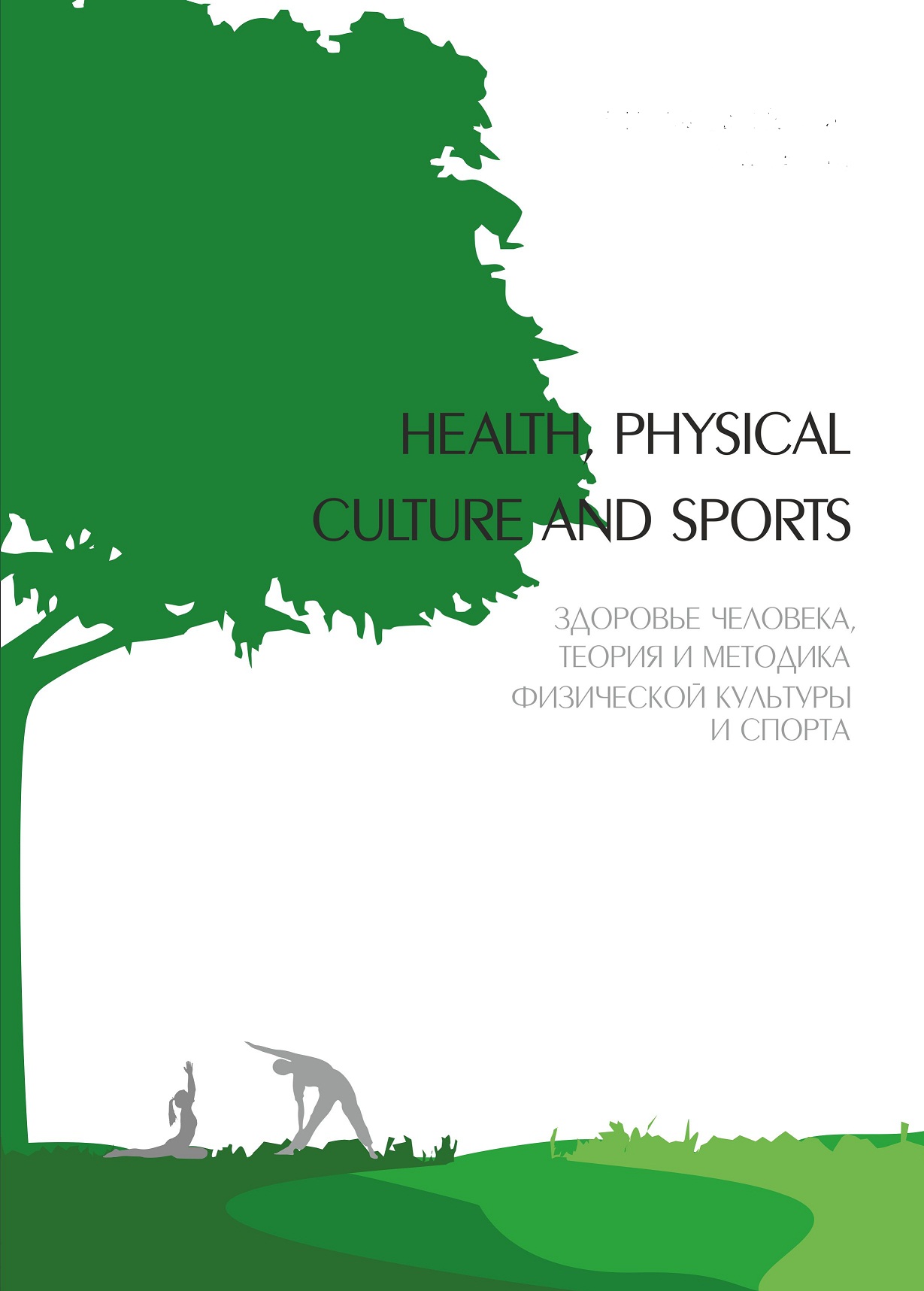The value of somnological characteristics and mode of the day in the state of health of students of sports University of Chelyabinsk
Abstract
This study aims to identify the value of somnological characteristics and mode of the day, as it affects the health of students of sports University. Students of a sports University are distinguished by a variety of activities. They successfully combine education at the University and sports training process, actively participate in the extracurricular life of the University, as well as in the research field. Together, such a load often leads to violations in sleep mode and then the day mode, which naturally entails the appearance of diseases of various levels. The study is relevant for understanding the state of students and the further development of the recommendations and techniques from the coaching and professorial-teaching staff for the restoration of full day mode, improve the quality of sleep and ultimately maintain a healthy lifestyle. The study applies the methodology of somnological questioning and questioning the daily routine of the students. For the reliability of the result was carried out a mathematical analysis using the criterion of Kruskall Wallace. According to the results of the study, it was found that half of the surveyed students (50%) on average sleep 7-9 hours a day. The remaining 50% of students spend less time sleeping than they should, or on the contrary sleep for too long, which further tires the body and are prone to health problems. In the training mode of students of violations it wasn't revealed, 68% of students train not in the competitive period within 1-2 hours a day. 68% of students spend 4-6 hours for study time. This is the main factor that significantly takes away the energy and efficiency of students due to the sufficient variety of sports disciplines in the University. With proper observance of the day and sleep, students can quite normally combine all kinds of activities in which they are involved and actively lead a lifestyle, without a negative impact on health
Downloads
References
Бумарскова Н. Н. Сомнологическое исследование студентов университета // Вестник МГСУ. - 2010. №4 - С. 356-358.
Бумарскова Н. Н., Калинкин А.Л. Изучение сна студентов-спортсменов // Вестник спортивной науки. - 2010. № 4 - С. 30-34
Н.Н. Бумарскова Нарушение сна у студентов и его коррекция. Москва, 2014. - С. 25-34.
Быков Е. В., Макунина О. А., Коломиец О. И., Коваленко А. Н. Организация мониторинга состояния здоровья студентов в Уральском государственном университете физической культуры // Научно-спортивный вестник Урала и Сибири. - 2017. №1 (13) - С. 3-9.
Гуляева С. С. Физическая культура, спорт, наука и образование // Материалы I Всероссийской научной конференции с международным участием. – 2017. - Том Часть I.
Диогенова К. С., Звягина Е. В. Влияние факторов режима дня на здоровье студентов, занимающихся спортом / К. С. Диогенова, Е. В. Звягина // Здоровье человека, теория и методика физической культуры и спорта. – 2018. - № 4. – С. 37-48. URL: http://journal.asu.ru/zosh/article/view/4748 (дата обращения: 29.09.2018).
Жаринов Н. М., Жаринова Е. Н. Личностные особенности студентов разных уровней спортивной успешности // Здоровьесберегающие технологии работников АПК-залог продовольственной безопасности России. – 2017. - С. 160-164.
Звягина Е. В., Сайфутдинов С. В., Гришкевич М. С. Особенности реализации программы здорового образа жизни студентов вуза физической культуры г. Челябинска / Е. В. Звягина, С. В. Сайфутдинов, М. С. Гришкевич // Здоровье человека, теория и методика физической культуры и спорта. – 2018. - № 3. – С. 12-22. URL: http://journal.asu.ru/zosh/article/view/4496 (дата обращения: 12.05.2018).
Макунина О. А. Функциональное состояние нервной системы студентов-спортсменов в зависимости от организации режима дня / О. А. Макунина // Здоровье человека, теория и методика физической культуры и спорта. – 2017. – № 2. – С. 112-129. URL: http://journal.asu.ru/index.php/zosh (дата обращения: 18.04.2017).
Поспелова Е. А. Правильный режим дня студентов спортсменов // Актуальные проблемы физической культуры, спорта, туризма и рекреации. - 2016. – С. 123-132.
Романова Е. В., Готовчикова Л. В. Мотивация молодежи к занятиям физической культурой (на примере студентов алтайского края) / Е. В. Романова, Л. В. Готовчикова // Здоровье человека, теория и методика физической культуры и спорта. – 2017. - № 1. – С. 49-59. URL: http://journal.asu.ru/zosh/article/view/1739
Amy C.Reynolds, Lisa J.Meltzer, JillianDorrian, Stephanie A.Centofanti, Sarah N.BiggsPhDe Impact of high-frequency email and instant messaging (E/IM) interactions during the hour before bed on self-reported sleep duration and sufficiency in female Australian children and adolescents. Sleep Health – 2019. – Vol.5. 64-67 P.
Seiko Miyata, Akiko Noda Delayed sleep/wake rhythm and excessive daytime sleepiness correlate with decreased daytime brain activity during cognitive task in university students. Journal Biological Rhythm Research – 2019. – Vol.50. 171-179 P.
Copyright (c) 2019 Health, physical culture and sports

This work is licensed under a Creative Commons Attribution-NonCommercial 4.0 International License.
An author should not normally publish manuscripts describing essentially the same research in multiple journals or publication venues. Such redundant publication is generally considered to constitute unethical publishing behavior, and if discovered may result in a manuscript under consideration being rejected, or a published article being retracted.
Authors of manuscripts reporting on original research should present an accurate account of the work performed, accompanied by an objective discussion of its significance. Underlying data should be represented accurately in the manuscript. The manuscript should contain sufficient detail and references to permit others to replicate the work. The fabrication of results and the making of fraudulent or knowingly inaccurate statements constitute unethical behavior and may be cause for rejection or retraction of a manuscript or published article.





